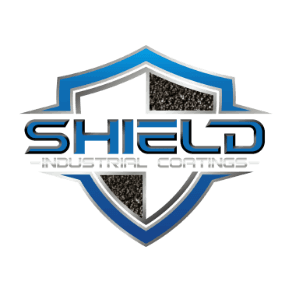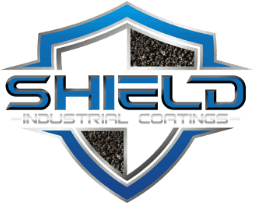The value of the global industrial coatings market size topped $102 billion in 2021. And by 2026 it’s set to reach $116 billion.
Industrial coatings are in high demand thanks to their ability to protect surfaces. Applying an industrial coating to your equipment also serves to enhance its appearance and extend its lifespan.
These surfaces can include timber, metal, plastic, concrete, rubber, and glass, among others. The protective coatings used to cover them also vary a great deal. But each offers different characteristics and a range of unique benefits.
Keep reading to learn more about the different kinds of industrial protective coatings available.
Polyurea Coating
At present, the global polyurea coating market is worth around $1.2 billion. But it’s also one of the fastest-growing subcategories within the coatings industry. Experts predict the value of polyurea coating to increase by 10 percent every year from now on.
This is because polyurea is the best industrial coating available. There are many metrics to compare different types of protective coatings. But polyurea comes out on top every time.
As an elastomer, polyurea has a dynamic, flexible structure. But polyurea is also durable, UV-resistant, heat-resistant, and quick-setting. And, as a bonus, it has an appealing appearance with many pigment options.
Polyurea is also easy to work with. For those of you planning on coating anything from pool decking to concrete flooring with polyurea, mobile spray rig application is convenient and customizable.
And thanks to polyurea’s quick curing time, application is possible anywhere. This even includes in temperatures of -20°. Polyurea also performs well in humid environments and withstands very harsh conditions.
Thanks to these unique benefits, polyurea has many uses. But it’s especially essential in industrial, construction, and automotive settings. In particular, manufacturers value it for waterproofing, chemical resistance, corrosion, and prevention.
As such, you’ll likely find polyurea on bridges, car parks, spray-on truck bed liners, and roofs. And, since it offers an appealing finish, it’s also ideal for residential flooring.
Epoxy Coatings
Epoxy coatings are two-part materials made by blending an epoxy polymer. with an amine curing agent. These two liquid substances react to form a durable solid coating.
Epoxy coating manufacturers can vary the ingredients and ingredient ratios in their epoxies. This allows them to create coatings with a range of physical properties. Epoxy coatings can suit products that must stand a variety of conditions.
Epoxies are quite effective at resisting weathering and abrasion. They also bond well to a variety of different surfaces. That said, epoxy coatings do come with some disadvantages.
Unlike fast-setting polyurea, epoxy coatings have long curing times. They also come with hazardous application fumes. This combination means that epoxy floors and the like are difficult to complete, even by professionals.
Polyurethane Coatings
Not to be confused with polyurea, polyurethane is a substance created from a reaction between a polyol and an isocyanate. The result of this reaction is a plastic material that’s popular as both a top coat and a stand-alone coating. Polyurethane is also effective when used in adhesives, fibers, and a range of other products.
As a coating, polyurethane does share some similarities with polyurea. In their final forms, both can set into coatings that can range from very flexible to very stiff.
Polyurethane provides good protection against chips, abrasions, and general wear and tear. It also maintains its vibrancy for a long time. This makes polyurethane ideal for products in need of aesthetic appeal as well as extra protection.
Polyurethane also has the advantage of being cheaper than many other options. This means that opting for a polyurethane coating can reduce manufacturing costs.
For many of these reasons, polyurethane has been a standard protective coating for decades. Although, that’s not to say that using it as a protective coating doesn’t come with a range of downsides.
One of the biggest issues with polyurethane is the lack of weatherability and heat resistance that it offers. Polyurethane is also flammable and won’t hold up against most common solvents. All this makes it a poor choice for products exposed to industrial environments.
The application process is also a lot trickier with polyurethane than with polyurea. This is because temperature and humidity can have adverse effects when applying polyurethane.
In particular, polyurethane coatings may blister when applied at humidity levels of more than 70 percent. And the chemical reaction of polyurethane is sensitive to temperatures lower than 32°. What’s more, like epoxy coatings, polyurethane coatings are also toxic until they have completely cured.
Zinc-Based Coatings
Zinc is a unique metal with many useful properties, including corrosion resistance. This makes it a good option as an ingredient in high-performance protective coatings for metal products.
Following application, the zinc corrodes to create a zinc patina. This then forms a resistant barrier between the product and the atmosphere.
Various strategies for applying zinc-based coatings include metallization, galvanization, and electroplating. These different methods create different thicknesses. And, as a result, they can provide varying levels of product protection.
Like polyurea, zinc-based coatings offer long life, fast setting, and application under any conditions. That said, zinc-based coatings do have several disadvantages.
A key problem is that zinc-based coatings do not perform well at temperatures of 212° and over. They don’t hold up well against acids, alkalis, or moisture-prone surfaces either.
Also, during application, it can be challenging to achieve an even surface coating. This can lead to faster corrosion in areas with less zinc coverage.
Your Guide to the Different Types of Industrial Protective Coatings
As this guide shows, the most popular type of protective coatings all have their pros and cons.
But, while polyurea might be a more modern addition to the coating industry, it has already proven itself to be the best. And, as the most versatile, durable, and convenient coating, it’s no wonder it’s a must for a variety of industries and uses.
Want to know more about polyurea coatings? Get in touch with us here at Shield Industrial Coatings today. As one of the country’s leading protective coatings companies working with polyurea, we’re always happy to help!

